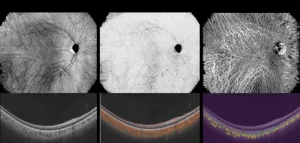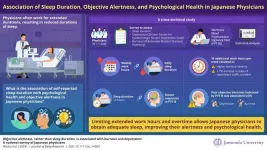(Press-News.org)
Insilico Medicine(“Insilico”), a global leading generative artificial intelligence (AI)-driven biotechnology company, today announced it has signed a Revolving Loan Facility of up to US$100 million with HSBC, one of the world's largest banks and financial services institutions. HSBC’s customized financing solution will support Insilico’s global development centered on multiple sites, as well as the expansion of innovative advantages, thus driving the economy growth in the Greater Bay Area.
Insilico is committed to driving advancements in healthcare using cutting-edge AI technology, reducing costs and improving efficiency in early-stage drug development, and meeting unmet clinical needs with higher efficiency and quality. The credit line, provided from HSBC New Economy Fund, will support the expansion of Insilico's proprietary novel drug discovery pipeline and the upgrade of its end-to-end diversified AI platform, Pharma.AI.
“HSBC is a key partner in the global development of Insilico, with its global network coverage, diversified business support, strong innovation and financial strength”, says Feng Ren, PhD, Co-CEO and Chief Scientific Officer of Insilico Medicine. "With HSBC's support in cross-border business, payment and digital solution, Insilico will take its Hong Kong headquarter as a starting point to integrate the advantages of various regions and accelerate the company's global business process."
Anita Ou, Managing Director, Head of Enterprise Banking, Commercial Banking, Hong Kong, HSBC, said, "The combination of biotech and AI technology holds the potential to revolutionize drug discovery and development while enhancing access to healthcare. By providing cross-border financing solution to innovative biotech firms, banks not only support scientific breakthroughs but also fuel societal well-being. Leveraging our extensive global network and financing expertise, HSBC is uniquely positioned to provide unparalleled support for these forward-thinking companies."
According to a Frost & Sullivan report, the innovative drug market is expected to reach $526 billion by 2025, with a compound annual growth rate of 3.4%. Today, a novel drug is still expected to cost 10 years and $1 billion, calling for ground-breaking technologies including artificial intelligence to break through the bottlenecks. The biopharma industry is in even more urgent need for real-life cases and proof of concepts to stay confident.
In 2016, Insilico first described the concept of using generative AI for the design of novel molecules in a peer-reviewed journal, which laid the foundation for the commercially available Pharma.AI platform. In 2019. Insilico Medicine established office in Hong Kong Science and Technology Park (HKSTP), building target discovery and platform application teams to empower research collaborations with top research institutes including the University of Cambridge, the University of Hong Kong, the University of Zurich, and the University of Toronto. Since then, Insilico keeps integrating technical breakthroughs into Pharma.AI platform, which is currently a generative AI-powered solution spanning across biology, chemistry and clinical development. Powered by Pharma.AI, Insilico has nominated 19 preclinical candidates in its comprehensive portfolio of over 30 assets since 2021 and has received IND approval for 9 molecules.
In early 2024, Insilico published a Nature Biotechnology paper presenting the entire R&D journey from AI algorithms to Phase II clinical trials of ISM001_055, the company’s lead drug pipeline with AI-discovered target and AI-designed structure. Following that, Insilico has recently announced positive preliminary results from a Phase IIa trial (NCT05938920), where ISM001_055 showed favorable safety and tolerability across all dose levels, as well as dose-dependent response in forced vital capacity (FVC), after only 12 weeks of dosage.
About Insilico Medicine
Insilico Medicine, a global clinical stage biotechnology company powered by generative AI, is connecting biology, chemistry and clinical trials analysis using next-generation AI systems. The company has developed AI platforms that utilize deep generative models, reinforcement learning, transformers and other modern machine learning techniques for novel target discovery and the generation of novel molecular structures with desired properties. Insilico Medicine is developing breakthrough solutions to discover and develop innovative drugs for cancer, fibrosis, immunity, central nervous system diseases, infectious diseases, autoimmune diseases, and aging-related diseases.
www.insilico.com
END
Alongside artificial intelligence, quantum computing is one of the fastest-growing subsets in the high-performance computing community. But what happens when this relatively new and powerful computing method reaches the limit of the cyberinfrastructure and network security capabilities of today?
Researchers at the National Center for Supercomputing Applications are addressing this issue before it becomes a problem.
“The problem is urgent because practical quantum computers will break classical encryption in the next decade,” ...
Researchers from Peking University have developed a novel noninvasive choroidal angiography method that enables layer-wise visualization and evaluation of choroidal vessels using deep learning. This new approach, published in Health Data Science, employs an advanced segmentation model that can handle varying quality of optical coherence tomography (OCT) B-scans, making it a promising tool for clinical applications in diagnosing retinal diseases.
Choroidal Optical Coherence Tomography Angiography (C-OCTA) offers a significant improvement in the analysis of choroidal vessels, a critical component in the ...
CLEVELAND—Multiple sclerosis (MS) is a debilitating disease of the brain and spinal cord that impacts millions worldwide.
In MS, the immune system mistakenly attacks the myelin sheath—a protective layer surrounding nerve cells in the nervous system. The loss of myelin, combined with ongoing inflammation, causes dysfunction and death of nerve cells, making the disability worse, such as difficulties with movement, coordination, and sensation.
Treatments now focus on reducing attacks on myelin, but don’t address nerve-cell damage and death.
But with $1 million from the National Multiple ...
Nationwide, fewer people smoke than did a decade ago, but the proportion who smoke menthol-flavored cigarettes is on the rise.
More than 9 million adults, or about 32 percent of all smokers, use menthol cigarettes, according to the Centers for Disease Control and Prevention. In Virginia, the proportion stands higher, at 38 percent.
A team of researchers including Roberta Freitas-Lemos, assistant professor at Virginia Tech’s Fralin Biomedical Research Institute at VTC, found that if menthol products were unavailable, smokers found replacement therapies such as nicotine gum and lozenges were practical alternatives, potentially improving health outcomes for people who use menthol ...
Physicians are a vital component of the healthcare landscape and along with other medical professionals, they ensure timely diagnosis, treatment, and management of complex illnesses. They regularly work extended and overnight shifts, often at the cost of sleep. However, the long duty hours of physicians can lead to physical and mental exhaustion, resulting in negative consequences such as depression and burnout. Consequently, this can affect their level of alertness and thus the quality of patient care. To protect the health of Japanese physicians, a duty hour reform went into effect ...
Stem cells grown in microgravity aboard the International Space Station (ISS) have unique qualities that could one day help accelerate new biotherapies and heal complex disease, two Mayo Clinic researchers say. The research analysis by Fay Abdul Ghani and Abba Zubair, M.D., Ph.D., published in NPJ Microgravity, finds microgravity can strengthen the regenerative potential of cells. Dr. Zubair is a laboratory medicine expert and medical director for the Center for Regenerative Biotherapeutics at Mayo Clinic in Florida. Abdul Ghani is a Mayo Clinic research technologist. Microgravity is weightlessness ...
Toronto, ON, November 4, 2024 – People with a history of concussion face a 25% higher risk of having severe mental health issues after childbirth, according to a new study from ICES and the University of Toronto.
The research underscores the importance of identifying individuals with past concussions early in their prenatal care and highlights the need for long-term, trauma-informed support to safeguard their mental health.
“We found that individuals with a history of concussion were significantly more likely to experience serious mental health challenges, ...
ITHACA, N.Y. – A popular new strategy for combatting misinformation doesn’t by itself help people distinguish truth from falsehood but improves when paired with reminders to focus on accuracy, finds new Cornell University-led research supported by Google.
Psychological inoculation, a form of “prebunking” intended to help people identify and refute false or misleading information, uses short videos in place of ads to highlight manipulative techniques common to misinformation, such as emotional language, false dichotomies and scapegoating. The strategy has already been deployed ...
CAMBRIDGE, MA – Silicon transistors, which are used to amplify and switch signals, are a critical component in most electronic devices, from smartphones to automobiles. But silicon semiconductor technology is held back by a fundamental physical limit that prevents transistors from operating below a certain voltage.
This limit, known as “Boltzmann tyranny,” hinders the energy efficiency of computers and other electronics, especially with the rapid development of artificial intelligence technologies that demand faster computation.
In an effort to overcome this fundamental limit of silicon, MIT researchers fabricated a different type ...
When torrential rains and powerful winds hit densely populated coastal regions, whole cities can be destroyed—but governments and residents can take precautions with sufficient warning.
Many of these coastal deluges are caused by atmospheric rivers—regions of concentrated water vapor carried along on strong winds, sometimes called “rivers in the sky.” Meteorologists monitor them, but the ability to predict exactly how an atmospheric river might behave based on its underlying physics would offer more precise forecasts.
In a paper published today in Nature Communications, senior author Da Yang, assistant professor of geophysical sciences at the University ...




